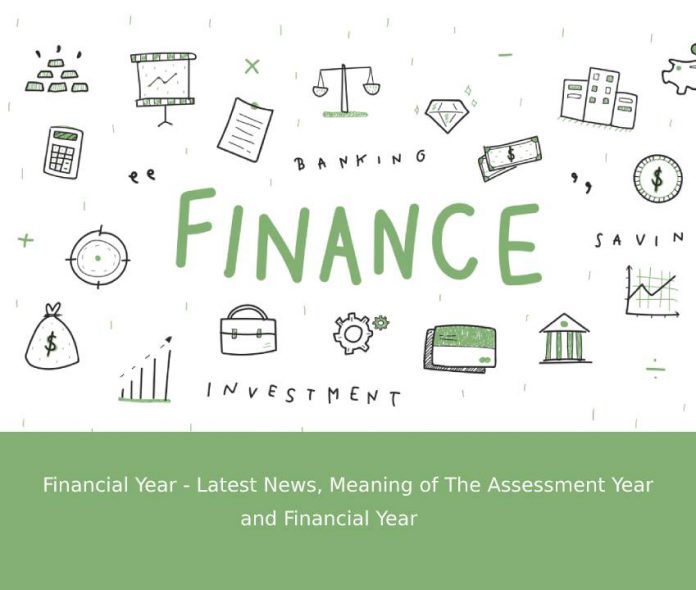Every public and private companies manage their accounts and balance sheets and in the case of public companies, they need to report their profit and loss details after every quarter-end.
So, all public and private companies need to follow the Financial Year or Fiscal Year to maintain their accounting and balance sheets.
Article Content:
- What is Financial Year?
- What is Assessment Year?
- Difference between the Assessment Year and Financial Year
- ITR and Other form have Assessment Year and Financial Year
- Why does the Indian financial Year start from 1st April?
- Financial Year across the Countries
- No extension of the Financial Year 2019-20
What is Financial Year?
A Financial Year is an annual period in which a company open new accounts at the start and closes at the end. The Financial year is different from the calendar year in India, the financial year is from 1st April to 31st March. It contains 12 consecutive months which is divided into 4 Quarters; Quarter 1st April to June, Quarter 2nd July to September, Quarter 3rd October to December Quarter 4 January to March and it is also called as Fiscal Year. Financial Year represented by “FY”.
For all Taxpayer, Bank, Professional and Companies 31st March plays a vital role as the Financial year comes to an end. All the government policies, budget and tax regime are framed according to the financial year.
What is Assessment Year?
The year falling next to a financial year is known as Assessment Year wherein the income of the Financial Year is assessed. Assessment year & Financial both begin on 1st April and end on 31st March.
For instance, for the Financial Year 2019-20, the Assessment Year would be 2020-21.
What is the difference between the Assessment Year and Financial Year?
Financial Year is the year or the period within which income is earned and the Assessment year is the year that comes after the financial year wherein the income of the Financial year is assessed and taxed.
Example of Financial Year and Assessment Year is:
| Period | Financial Year | Assessment Year |
| 1st April 2020 to 31st March 2021 | 2020-21 | 2021-22 |
| 1st April 2019 to 31st March 2020 | 2019-20 | 2020-21 |
| 1st April 2018 to 31st March 2019 | 2018-19 | 2019-20 |
| 1st April 2017 to 31st March 2018 | 2017-18 | 2018-19 |
| 1st April 2016 to 31st March 2017 | 2016-17 | 2017-18 |
ITR and Other form have Assessment Year and Financial Year
- Form 26AS will have both Financial Year and Assessment Year
- Form 16A will have both Financial Year and Assessment Year
- ITR only has an Assessment Year
In case of filing Income Tax returns, taxpayers need to remember that Financial Year is the previous year and Assessment Year is the year in which you file your Income Tax Returns, both AY and FY are two different years.
Why does the Indian financial Year start from 1st April?
The exact reason why the Indian Financial Year starts from 1st April is not known but there are few reasons that answer the question. It varies between country to country
- India was ruled by the Britishers and their Financial Year starts from 1st April.
- The Income-Tax Act was published in 1961. The Act came into force from April 1, 1962, that’s why our financial year begins on April 1 every year.
- November and December are considered as festival season, in this period the value of sales for the retailers and value buying’s for the shoppers are heavy, it would have been difficult to close the books of accounts during this period.
- Being an agricultural economy, India’s revenue mainly depends on the outcome of the main crops that are harvested in the period of February and March.
- In the many regional calendars, the New Year starts in the month of April.
Financial Year across the Countries
India’s financial year starts from 1st April. This doesn’t mean every country follow the same financial year. There are some countries which follow different financial years.
Some of the example for the countries which follow different financial years,
| Countries | Financial Year they follow |
| Australia | 01st July to 30th June |
| Afghanistan | 21st December to 20th December |
| Brazil | 01st January to 31st December |
| Iran | 21st March to 20th March |
| United States | 01st October to 30th September |
No extension of the Financial Year 2019-20
There is fake news circulating about the Financial Year extension till 30th June to clarify all the rumours. The Ministry of Finance on 30th March 2020 issued a notification and said that the financial year will not be extended beyond March 31. There has been a demand in industries for an extension of the fiscal year by three months in view of the economic impact caused by the outbreak of COVID-19.




















